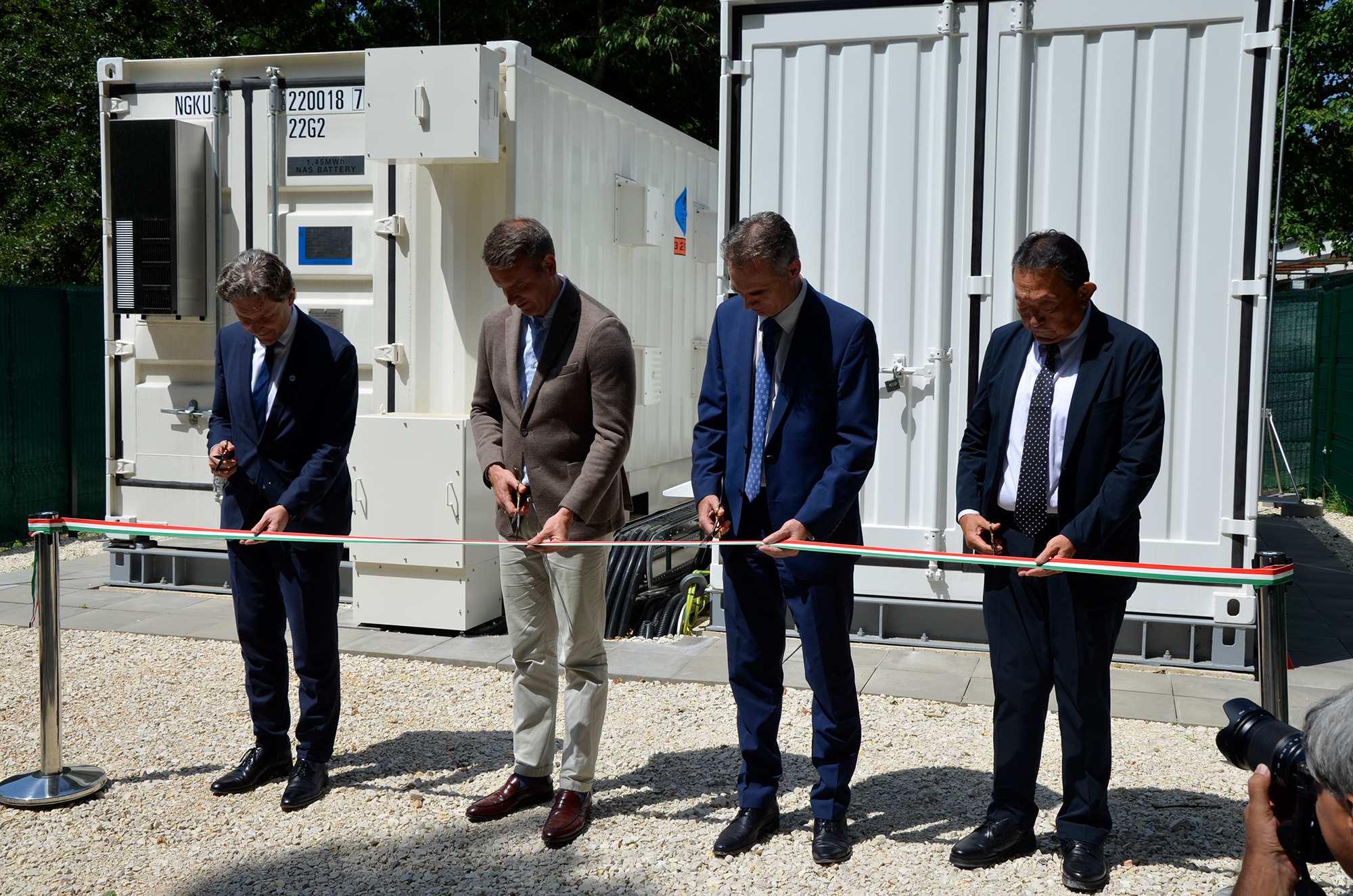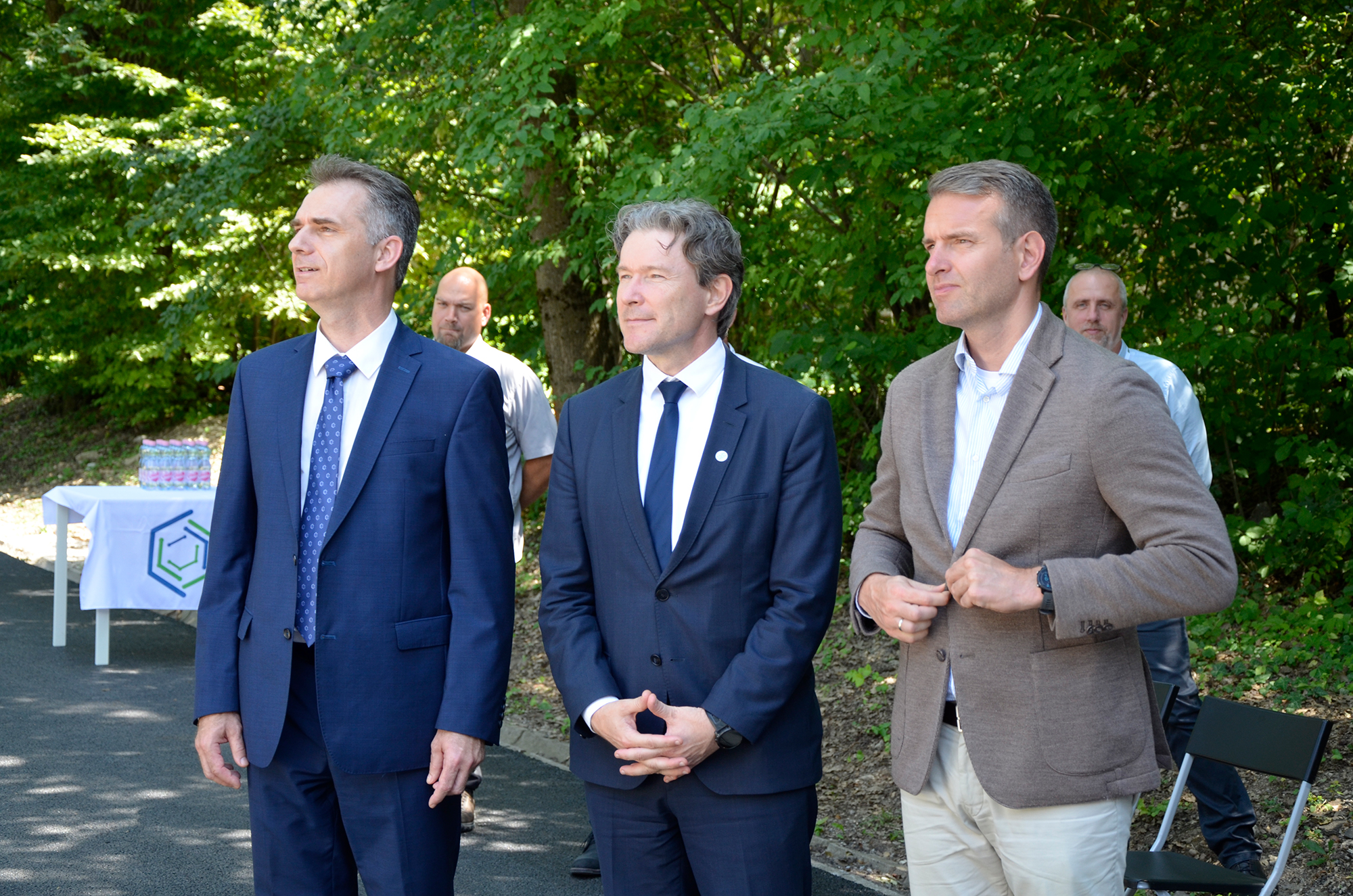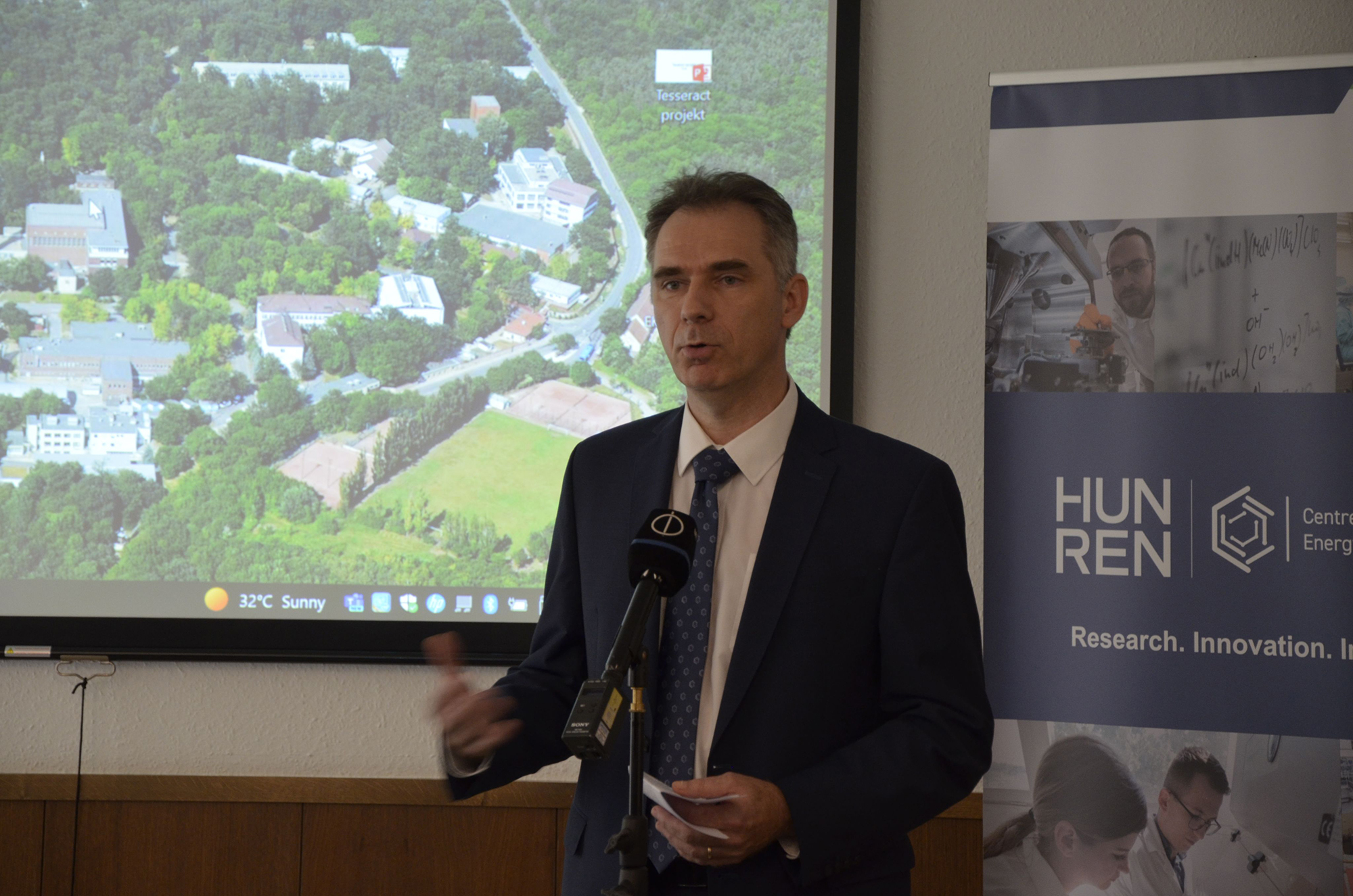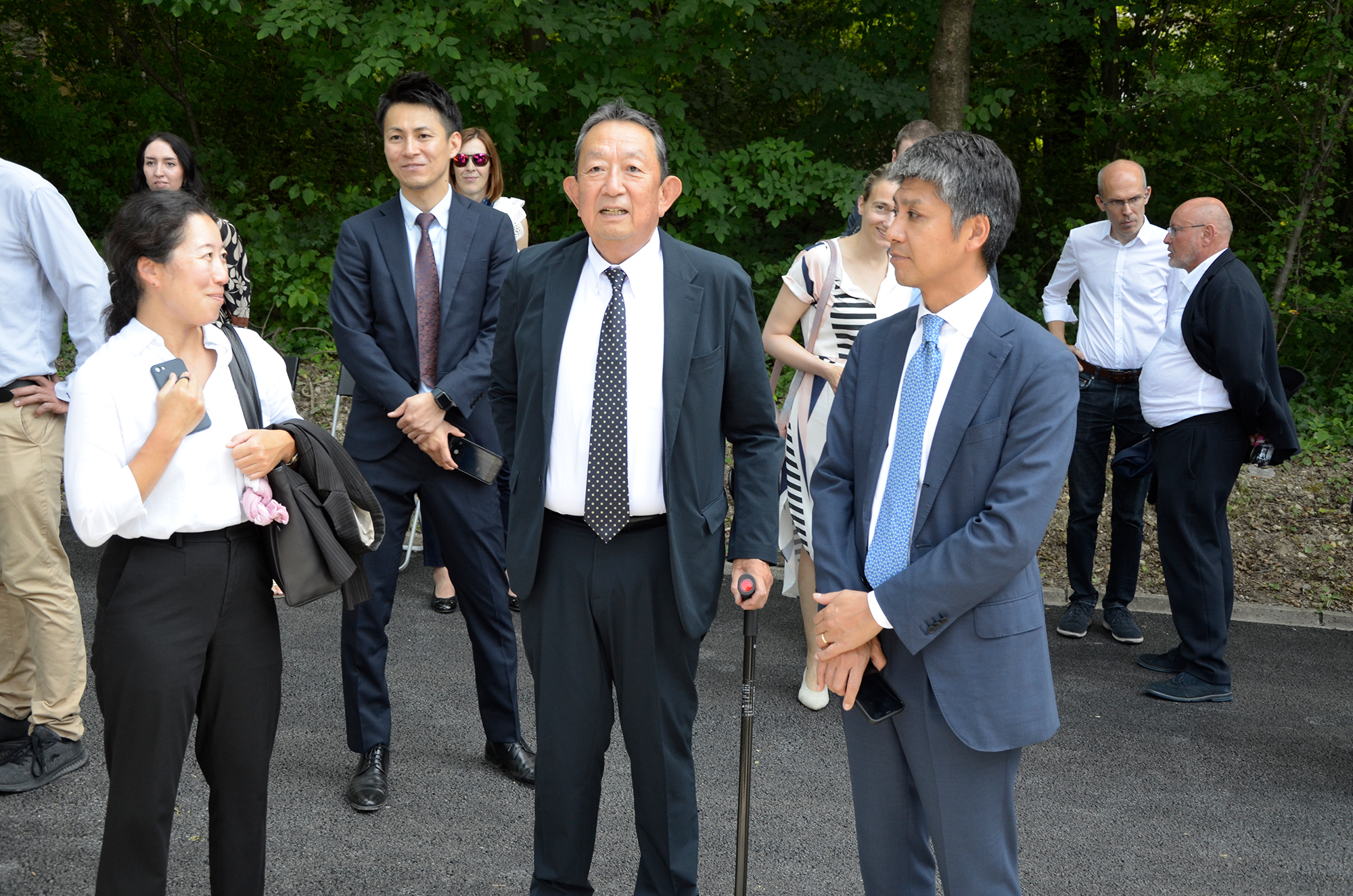Sodium-sulphur battery project represents the essence of HUN-REN’s modernisation
Hungary's first Na-S battery, inaugurated at the site of the HUN-REN Centre for Energy Research (HUN-REN EK-CER), will be able to demonstrate innovative electrical energy storage. The experiences gained during the project can assist in achieving Hungary's carbon neutrality. As mentioned at the inauguration, the programme serves as a model for the network's research sites seeking partners and suitable for interdisciplinary collaborations.

“The Centre for Energy Research is entering a new chapter in its activities, as it has acquired a modern, carbon-free battery that can support further significant and timely research and strengthen our scientific and innovation capabilities for international competition,” emphasised Roland Jakab, CEO of HUN-REN, at the inauguration ceremony of the special battery. According to Roland Jakab, with experts from various scientific fields – mathematicians, meteorologists, electrical engineers, and even architects – working together during the development process, the project reflects the very approach that defines the mission of the renewed and strengthened HUN-REN as a whole: multidisciplinarity, collaboration among researchers from different disciplines, and the search for fruitful industrial links, which is essential for realising such innovation. As mentioned, the essence of HUN-REN’s modernisation is embodied in the sodium-sulphur battery project, which also serves as a model for the network's research sites seeking partners and suitable for interdisciplinary collaborations.
Attila Steiner, State Secretary for Energy and Climate Policy at the Ministry of Energy, highlighted at the event that collaboration is becoming increasingly important in the energy sector. This was encouraged by a grant programme launched in 2021, which resulted in Hungary's first sodium-sulphur battery. Three years ago, the total installed solar capacity in Hungary was around 3,000 megawatts, with projections estimating it would reach 6,000 megawatts by 2030. However, the country has already achieved this milestone this year, and by the beginning of the next decade, total annual capacity could reach 12,000 megawatts. On some days, Hungary is already capable of meeting its electricity needs with solar and nuclear power, and sometimes even exporting surplus energy, as the State Secretary emphasised.

At the ceremony, Ákos Horváth, Director General of the HUN-REN Centre for Energy Research, explained that new technologies are needed in the field of renewable energies, highlighting the essential role of collaboration between research institutes, universities, and industrial partners in this research. The inauguration of Hungary's first sodium-sulphur battery was made possible through the cooperation of MVM Group, the HUN-REN Hungarian Research Network, HUN-REN EK-CER, the Budapest University of Technology and Economics, and the University of Pannonia, as well as the Japanese manufacturing partner and support from the Government of Hungary.

The battery, manufactured by Japan's NGK Insulators Ltd., and the accompanying inverters made by Switzerland's Indrivetec AG, arrived at the research centre's site, KFKI Campus, in February as part of the Tesseract Energy Storage (2021-2.1.1-EK-2021-00002) project. Following the interconnection of the battery and inverters with each other and with the site's electrical and communication networks, as well as the installation of the components, testing of the energy storage system is set to begin in July and continue until the end of the year.

The demonstration energy storage system, capable of storing 1.45 MWh of electrical energy, will undergo testing through a range of market services, including frequency regulation and peak shaving. The experience gained during this process will enable the research centre to professionally support further market projects, thereby facilitating the achievement of carbon neutrality in the country.

